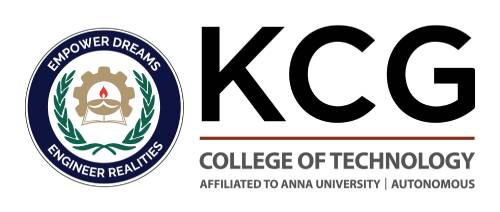The Electric Vehicle Revolution in India: A Great Career Opportunity
In recent years, India has witnessed a significant shift towards sustainable transportation, with the adoption of electric vehicles (EVs) gaining momentum. The government’s ambitious plans, such as the Faster Adoption and Manufacturing of Hybrid and Electric Vehicles (FAME) scheme, have encouraged the production and use of EVs in the country. According to various industry reports and studies, the market share of electric vehicles in India is expected to grow steadily in the next decade. The Government of India’s ambitious target of achieving 30% electric vehicle adoption by 2030 further emphasizes the potential growth of EVs in the country. This surge in the electric vehicle industry has not only propelled the country towards a greener future but has also opened up numerous career opportunities for aspiring engineers.
1.EV Design Engineer: As an EV design engineer, you would be responsible for conceptualizing and creating the overall design of electric vehicles. This includes working on the exterior and interior styling, chassis design, battery placement, motor integration, and other crucial components of the vehicle. You would work closely with a team of engineers, designers, and technicians to bring your ideas to life.
2.Battery Systems Engineer: Battery technology is a critical aspect of electric vehicles. As a battery systems engineer, you would focus on developing and optimizing the battery systems used in EVs. This involves designing battery packs, managing thermal considerations, optimizing energy storage capacity, ensuring safety, and improving overall performance and efficiency.
3.Powertrain Engineer: The powertrain is another key component of an electric vehicle. Powertrain engineers specialize in developing and optimizing the electric motors, inverters, and associated control systems that drive the vehicle. They work on improving power delivery, efficiency, and overall performance of the electric drivetrain.
4.Charging Infrastructure Engineer: Electric vehicle charging infrastructure is essential for the widespread adoption of EVs. Charging infrastructure engineers are responsible for designing, developing, and implementing charging stations and networks. They work on optimizing charging speed, compatibility, and user experience, as well as integrating renewable energy sources into charging systems.
5.Vehicle Integration Engineer: Vehicle integration engineers ensure that all the components of an electric vehicle work together seamlessly. They focus on integrating various systems, such as the powertrain, battery, chassis, electronics, and software, to create a reliable and efficient vehicle. They are responsible for testing, validating, and optimizing the performance of the integrated vehicle systems.
6.Sustainability and Regulatory Specialist: With the rise of electric vehicles, there is a need for professionals who specialize in sustainability and regulatory aspects. These specialists work on ensuring compliance with environmental regulations, assessing the life cycle impact of EVs, developing sustainability strategies, and optimizing the ecological footprint of EV design and production processes.
To pursue a career in EV design and development, you will typically need a strong background in engineering, such as mechanical, electrical, or automotive engineering. Additionally, staying updated with the latest advancements and trends in electric vehicle technology through research and professional development opportunities will be beneficial.
Overall, the field of EV design and development offers a promising career path with opportunities to contribute to the advancement of sustainable transportation and shape the future of the automotive industry.
To work with electric vehicles (EVs) in India, there are several engineering branches you can pursue from the top engineering colleges in India that provide relevant knowledge and skills:
1.Electrical & Electronics Engineering: Electrical engineering forms the foundation for working with electric vehicles. It covers the principles of electricity, power systems, electric circuits, and electronics. This branch provides essential knowledge for understanding EV components such as batteries, motors, power electronics, and control systems.
2.Electronics and Communication Engineering: This branch focuses on electronics, communication systems, and embedded systems. It is crucial for understanding the electronic components and communication protocols used in EVs, including control systems, sensors, communication interfaces, and embedded software development.
3.Mechanical Engineering: Although not directly related to electrical systems, mechanical engineering plays a significant role in the development and integration of various EV components. It covers areas such as vehicle design, thermal management, aerodynamics, and materials science, which are essential for efficient EV design and manufacturing.
4.Automobile Engineering: Automobile engineering provides a comprehensive understanding of vehicle dynamics, vehicle design, safety systems, and automotive manufacturing processes. This branch is relevant to the EV industry as it covers key aspects of vehicle design and manufacturing, including EV-specific components and systems.
5.Computer Science & Engineering: Computer science and engineering play a significant role in the development of software systems and algorithms used in electric vehicles. This branch is essential for areas such as vehicle automation, data analytics, machine learning, and software development for EV control systems and user interfaces.
6.Mechatronics Engineering: Mechatronics engineering provides a deep understanding of mechanical systems, electrical components, and control systems. This knowledge is valuable in integrating various components of electric vehicles, such as motors, batteries, power electronics, sensors, and actuators.
KCG College of Technology empowers you to build your skills and knowledge in electric vehicle engineering and become a catalyst for change and contribute to creating a greener and more sustainable future for India. Embrace the electric vehicle revolution, seize the opportunities it presents, and embark on a fulfilling career journey in this thriving sector.
References:
https://auto.hindustantimes.com/auto/electric-vehicles/tesla-to-assemble-electric-cars-in-india-report-claims-ev-maker-plans-to-set-up-vendor-base-soon-41686196193203.html
https://indianexpress.com/article/business/economy/india-incentives-drive-ev-penetration-charging-infrastructure-key-moodys-8551894/
https://m.economictimes.com/prime/transportation/the-dawn-of-ev-charging-stations-in-india/primearticleshow/65465215.cms
https://www.business-standard.com/economy/news/registering-a-growth-of-58-ev-sales-cross-1-million-units-in-the-country-123041100267_1.html








